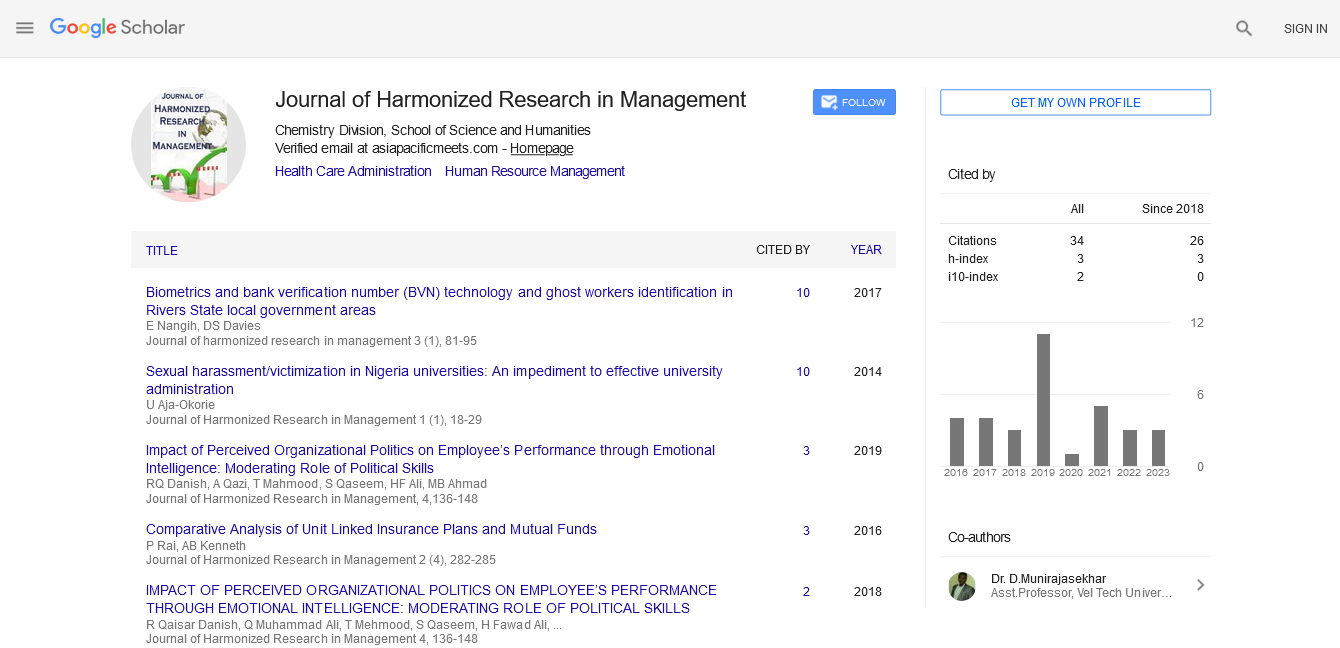ORGANISATIONAL CULTURE AND EMPLOYEE COMMITMENT IN PUBLIC ORGANISATIONS: A CASE OF UGANDA HUMAN RIGHTS COMMISSION
Abstract
Author(s): Paul Kayiira,, Dr Teopista Nalule Kyamanywa,, Jacob Siminyu, Sr Gorreti Namutebi
This paper is an extract from a bitter study that sought to examine the influence of organizational culture on employee commitment in Uganda Human Rights Commission. The study specifically explored the effect of team work, open communication and power structures on employee commitment. A total of 102 respondents, including 8 managers and 94 employees, participated in the study. The study employed both quantitative and qualitative methods. Primary data was obtained using a structured questionnaire and a structured interview guide. Data was analyzed using descriptive and inferential as well as qualitative methods. The findings reveal that; Team work, open communication and power structures are significant constructs that influence employee commitment and subsequently lead to goals and mission achievement of UHRC. These three aspects strengthened employee commitment to their assignments and organizational goals. This has subsequently increased organizational effectiveness. The organization has been able to complete a number of human rights cases most of which have been against central government. Hence organizational culture is significant in determining the level of employee commitment in public organizations. The researcher recommends; there is need to have more formal guideline for organizational culture of public institutions in Uganda. The culture of team work, open communication and flexible power structures should be promoted in public organizations in Uganda so as to increase their effectiveness. Guidelineson working as teams should be made by line ministries in central government for all organizations under their oversight. Therefore, organizational culture can be used to improve the low employee commitment in public organizations in Uganda.

Google Scholar citation report
Citations : 92
Journal of Harmonized Research in Management received 92 citations as per google scholar report









